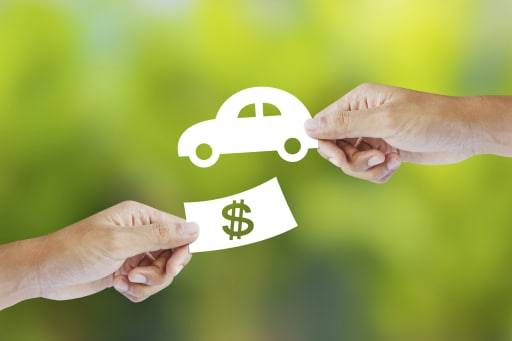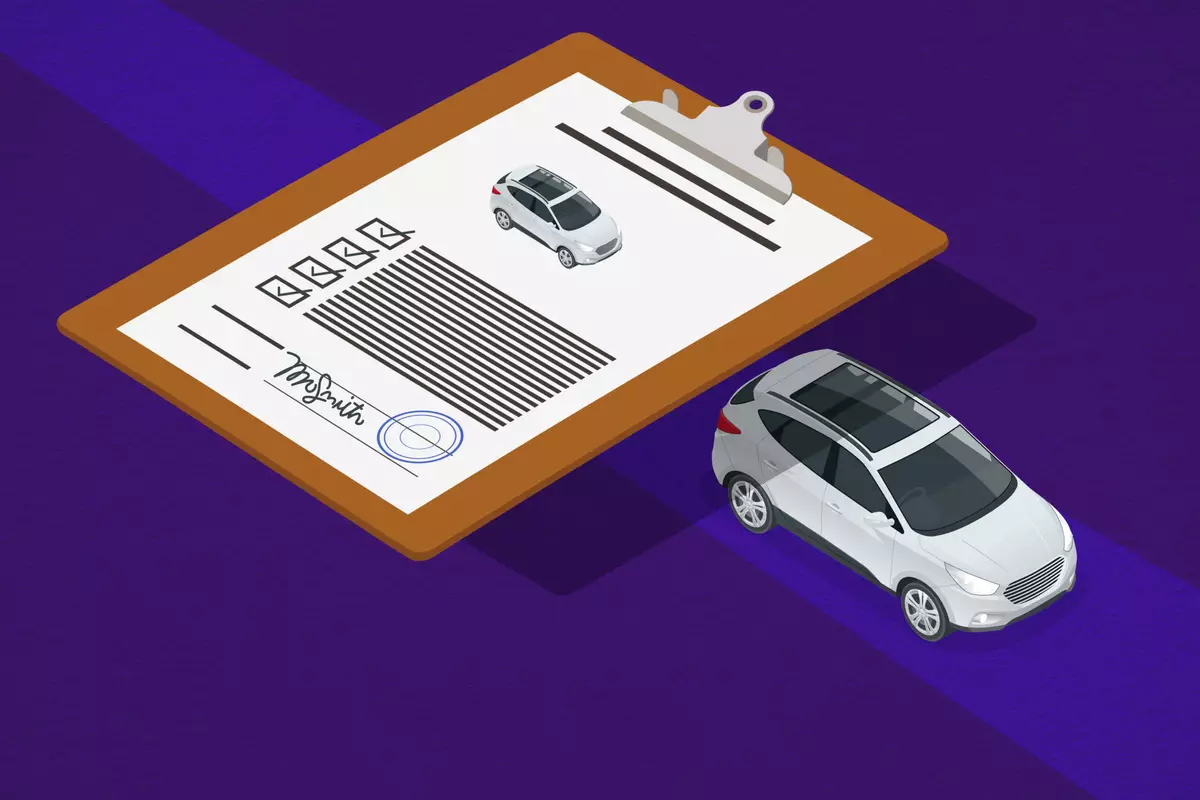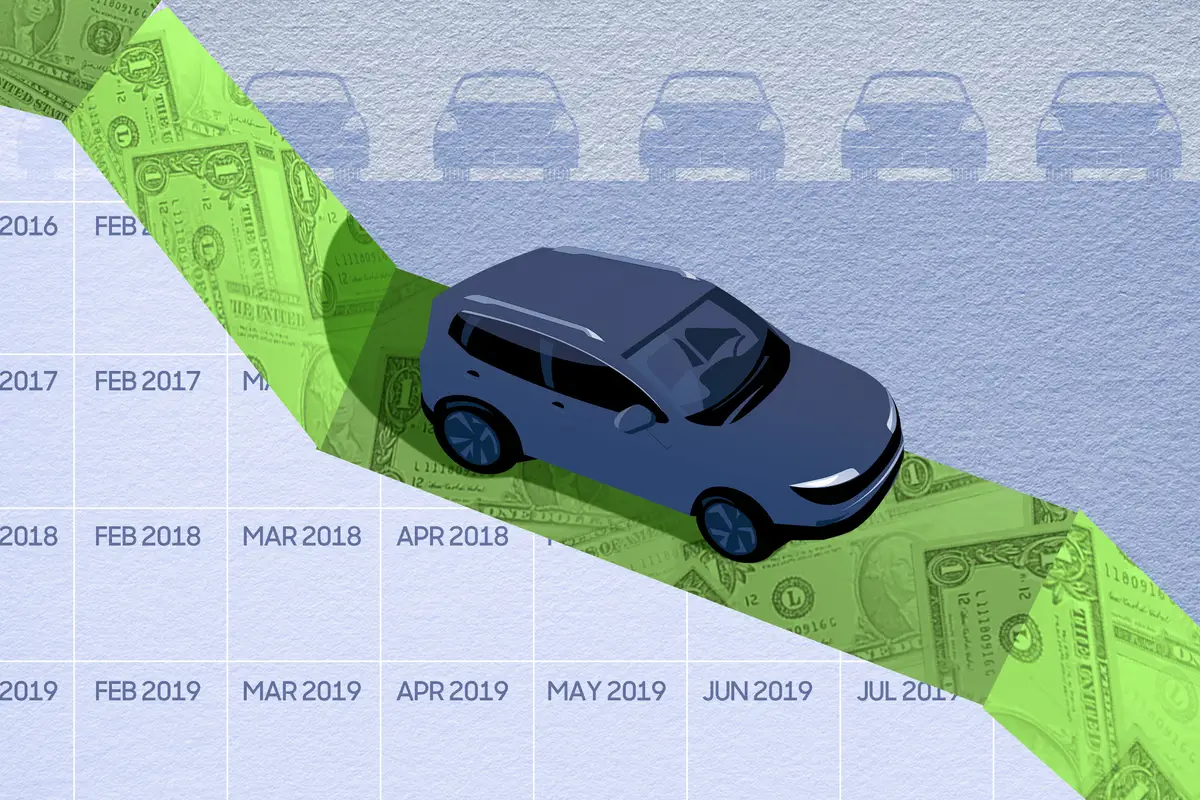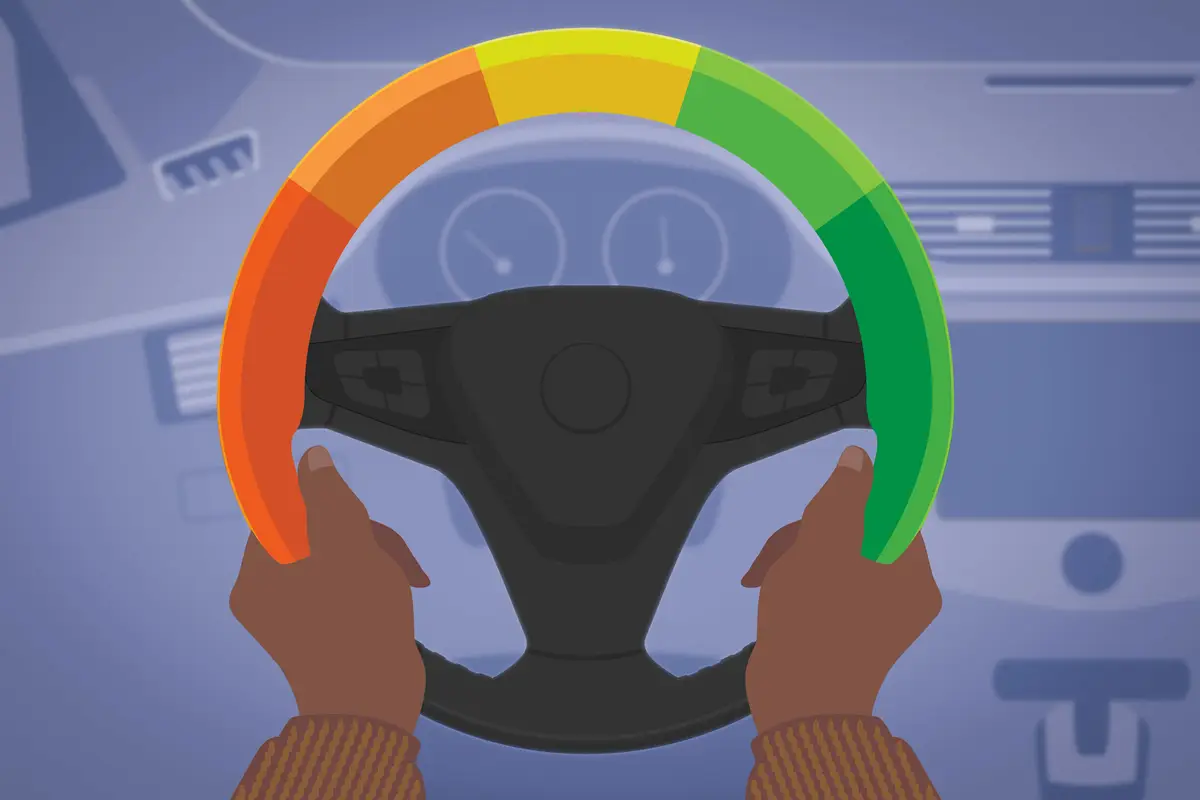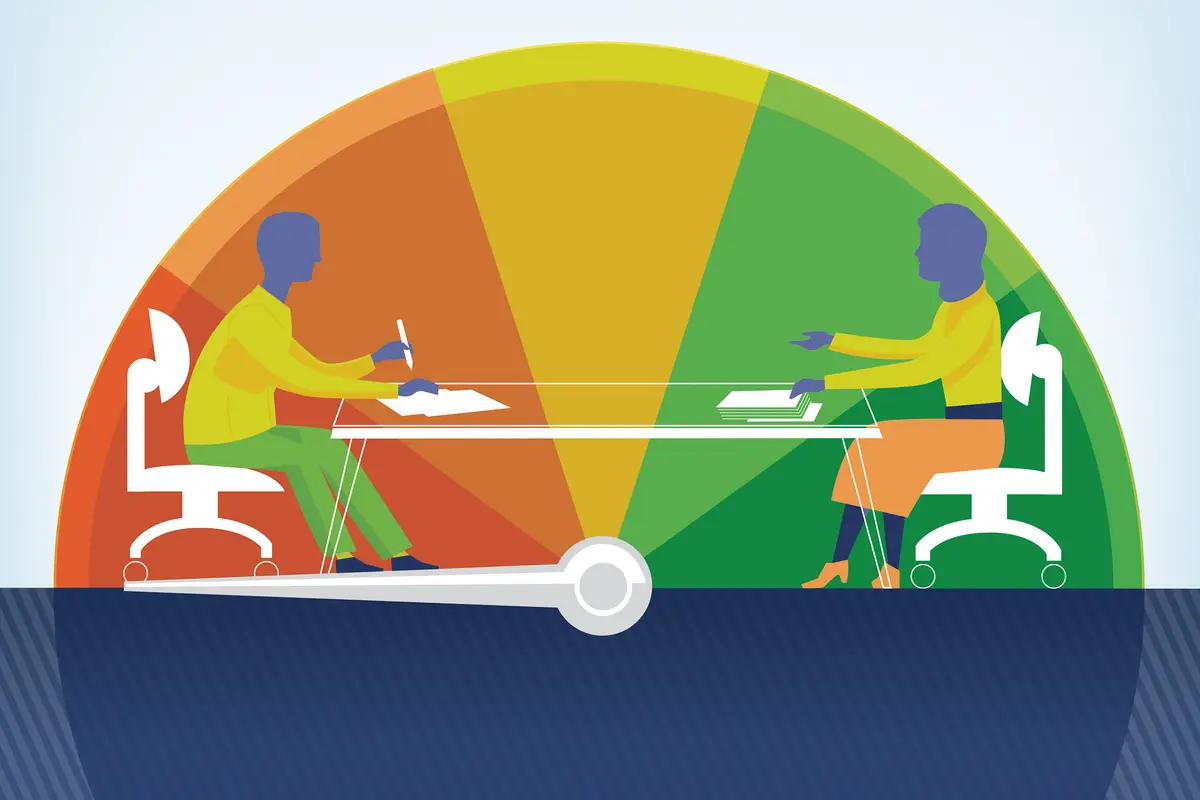Car loan calculator
Breakdown
(over life of loan)
*Title and other fees and incentives are not included in this calculation, which is an estimate only. Monthly payment estimates are for informational purpose and do not represent a financing offer from the seller of this vehicle. Other taxes may apply.
About your privacy: Cars.com is asking for your ZIP and credit rating because it helps us to make an educated guess at your sales tax and loan interest. These two factors can greatly change your monthly payment.
Car loan FAQ
How do car loans work?
When you secure a car loan from a financial institution, you borrow the money required to purchase the car and pay it back over time with an annual percentage interest rate.
Direct lending vs. dealership financing
To begin the car loan process, you first need to choose between the type of lender that you want to use. There are usually two options for choosing a lender: direct lending and dealership financing. Direct loans come from a financial institution, such as a bank or credit union, and can be secured prior to visiting a dealership for a vehicle purchase. Dealership financing can be secured after you’ve arrived at the dealership and negotiated a vehicle purchase.
Auto loans that you obtain from dealerships usually come from the captive lending department associated with the automaker of the vehicle you’re purchasing, but dealerships can also help you find rates from third-party institutions with which they partner. It’s advantageous to shop around and get preapproved for a loan prior to arriving at the dealership. This gives you leverage when negotiating financing terms, so the dealership may match or beat the terms that you obtained from the direct lender to secure your financing business.
Car loan application process
When filling out a car loan application, you’ll need to provide some personal information, such as your name, address, employment and financial history so that the lender can assess your ability to repay the loan.
Once you’ve been approved, you’ll usually have options for the loan term. The length that you choose can impact the interest rate, so it’s important to calculate how much you’ll be paying in interest over time. After you’ve chosen the terms of your loan, you’ll then be able to calculate your monthly payment. This number will include an amount toward the principal loan and an amount toward interest, and it’s the minimum that you’ll be required to pay each month for the length of your loan.
What’s the term on a car loan?
The car loan term is the length of time that you’ll be paying back the amount of money you borrowed. This typically ranges from 12 to 84 months in 12-month increments.
Although longer term loans (such as 72- and 84-month loans) will require lower monthly payments, they pose added risk because they increase the likelihood that you’ll be upside down on your loan. An upside-down car loan means that the amount you owe exceeds the value of your car, so you’ll be required to pay the difference if you choose to sell or trade in your car.
What’s the interest rate on a car loan?
The car loan interest rate is an annual percentage of the amount of money that you finance. It serves as the price you pay for borrowing money from a financial institution.
Interest rates are typically determined by economic factors and your individual credit score. The average interest rate will be higher during periods of economic uncertainty, but a higher credit score can help you secure a lower interest rate in comparison. You can increase your credit score over time by paying your bills and debts on time, maintaining a low debt-to-income ratio, keeping your credit card balance low and minimizing the number of accounts you open prior to your vehicle purchase.
What’s sales tax on a car purchase?
Sales tax is a percentage of the car price that you owe to your state and county in which you’ll be registering your vehicle. This means that you’ll be taxed based on your primary residence rather than the location of the dealership.
You can decide whether to include the sales tax amount within your car loan or pay it in full separately from your car loan. Paying separately can usually be done at the dealership, but you may need to pay the sales tax amount at your local DMV if you’re purchasing a vehicle at an out-of-county or out-of-state dealership.
Be sure to research how sales tax works for car purchases in your state – some states charge tax on the full price of the car you’re buying, while others charge no tax at all. Most states, however, allow a trade-in credit to offset the taxable amount of a car purchase.
What additional fees will I incur from a car purchase?
Other than sales tax, here are some additional fees that you might be responsible for when you purchase a vehicle:
- Destination: The destination fee covers the cost of a vehicle’s shipment from the factory to its point of sale, which is usually a dealership.
- Dealer documentation: The dealer documentation fee covers the cost of administrative tasks associated with a car purchase. These might include checking trade-in values, preparing the sales contract, registering the vehicle, issuing license plates and filing any other necessary paperwork.
- Title and registration: The title/registration fee covers the cost of registering a vehicle in your state and is usually owed on an annual basis. You might also be required to pay an annual registration fee to the town or city of your residence.
- Insurance: Car insurance is required by law and covers the cost of injuries and property damage that you cause if you are found at fault for an accident. There are also additional coverage types that you can include in your policy that will increase the cost of your premium, which can usually be paid monthly, semiannually or annually.
Like sales tax, the destination fee, dealer documentation fee and initial registration fee can usually be included in your loan or paid separately.
What's the trade-in value of a car?
A car’s trade-in value is the amount of money that a dealership is willing to pay for your car when you purchase a new one. There are important steps to follow to maximize your car’s trade-in value before visiting the dealership - these include:
- Thoroughly clean your vehicle and make any minor repairs that are necessary.
- Estimate your trade-in value from multiple sources to get a good idea of what your car is worth.
- Obtain multiple offers to sell or trade in your car prior to visiting a dealership.
- Allow the dealership to provide you with their trade-in offer, then use any other offers as leverage to negotiate if their number falls short.
Can I pay off a car loan early?
You typically can pay off a car loan early if it makes sense for your situation but be sure to check your financial documents first to ensure that there’s no penalty for prepaying the loan. If there are no penalties for prepayment and you find yourself in a better financial position than when you purchased the car, it can be a good idea to pay more than the minimum or pay off the balance entirely. This is because larger payments will help you lower the amount you’ll pay in interest throughout the life of your loan, which is especially true for longer term loans where you’re scheduled to pay more in interest.
Larger payments can also help with preparing for a “rainy day.” Many institutions will push your next payment date back a month each time you’ve prepaid a month’s worth of balance. Over time, you can find yourself several months ahead of your next payment date, which could be useful if you lose your source of income or incur any unexpected expenses. However, it’s important to note that your loan balance will continue to accrue interest if you pause payments for a period.
Can I refinance a car loan
Yes, you can refinance a car loan, but you should run the numbers to ensure that refinancing makes sense for your situation. Refinancing a car loan usually only makes sense if you’ll be significantly lowering your interest rate without extending the length of your loan. This can be difficult if you purchased a new car because you’d now be refinancing for a used car, and used-car interest rates usually exceed new-car interest rates.
Good candidates for refinancing might include people who have significantly improved their credit score since securing their car loan or people who financed through a dealership and found that the dealer took advantage of them and marked up their loan to a higher rate from what the lender provided.
Bad candidates for refinancing might include people who owe more money than their vehicle is worth. If you’re struggling to make payments, consult with your lender to discuss payment relief options before considering refinancing because working with your lender won’t impact your credit score.

